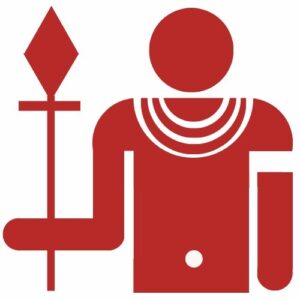
There is a strong bias towards just green farming when Agriculture is discussed. How did you manage to look away to livestock farming?
The Agricultural/Livestock industry in Africa has been totally overlooked when it comes to Agricultural technology and support and we at Anitrack are eager to put Africa on the map to turn that around.
Its true that most people usually think of food crops when we talk about agriculture.
As a matter of fact some parts of agriculture such as snail farming, mushroom farming etc are not even considered agriculture in some countries.
We as Anitrack felt this was not good enough. Agriculture employs directly and indirectly over 80 percent of the agricultural workforce in Africa and animal farming according to the world bank accounts for more than half of this. We realized there’s so much untapped opportunity in the livestock sector and it has the potential to get better than it is now.
What initiated the idea of Anitrack as a startup?
Anitrack was born out of a market research that was organized by the Meltwater Entrepreneurial School of Technology and Kosmos Energy Ghana. On this research trip that lasted over 9 months, we went out trying to solve the problems in the agricultural sector and one of the things that kept on resurfacing to my team was the fact that over 60% of livestock farmers we interviewed were complaining of losing their animals and they didn’t understand what was wrong. Cattle farming is a big thing in Ghana and Africa as a whole and averagely an animal costs between $900-$2000. If a farmer lost one of his animals that’s how much money he loses.
As technologists, we wondered why as a country we couldn’t save these farmers money by using already existing technologies to solve their problems. And then we decided to give it a go.
What technology does your startup use to track livestocks? Drones or?
Anitrack currently does health tracking and identification for farmers. We use a gamut of sensors to monitor animal vitals and report when necessary. We’re currently looking to integrate GPS and location tracking to make it much easier to know the exact location of animals. As at now we monitor movement of animals in and out of their kraals and notifies the farmers when an animal is out range.
Since the launch of Anitrack, would you say to have made significant progress? You could give us numbers.
Anitrack recently partnered with Farmable.me that does crowdfarming for livestock farmers and we have access to over 7500 cows ready to be tagged. We’ve currently tagged 97 animals on our pilot/ testing phase and still working hard to make the technology suitable for our clients.
Are there any competitors to Anitrack? How have you dealt so far?
So far there is one local competitor, Cowtribe, that depend on the farmer to report when their “think” their animals are not well. Even though they’re making some good money, Anitrack wants to take that burden off the farmer and make it much easier for them to manage all farm activities. On the international side we have Cowlar, Livecare and Anitrace, but even tho their solutions are great and their revenues keep increasing, their solution is just not tailored to the African farmer.
Do you have any plans to expand to monitoring farmlands too?
No
Tell us about the business model of Anitrack.
Anitrack is making its own wearable devices. These devices will be sold to the farmers. Farmers then subscribe to a fee for the information provided on monitoring individual animals and linkage to veterinary or other animal services per animal per year.

How is the startup funded? Do you have investors already?
MEST is the first organization to fund Anitrack
Tell us about the team behind the venture.
Anitrack is made up of 4 amazing minds. Winnie is the CEO, she’s Kenyan and handles all our business dealings. Tony is the CTO, he’s Ghanaian and is responsible for all the tech and research on new wearable technologies behind Anitrack. Andrew is American and he is the lead product developer for Anitrack. He aids us in getting our hardware to work without any flaw and mentors the team. Abdul is a farmer himself and a Ghanaian from the north. He’s responsible for our customer aquisition.
In 5 years time, how big do you envisage Anitrack?
We’re working tirelessly to make sure Anitrack becomes a household name for Livestock farming in Africa. That is our vision. We want to make the life of farmers profitable as it should be. We want to put Africa on the map for beef and diary exports and be profitable while doing this.
Tell us how you felt to have pitched at the Seedstars Accra event.
Pitching at Seedstars was an awesome opportunity for others to see the potential of the livestock sector. For people to know the kinds of opportunity that exists in this field. It was a humbling experience for me too as most of the startups had amazing businesses that all aimed to push the economic agenda of the country forward.
In your own view, do you think Africa has scratched even the surface of Agriculture yet? Why?
Not at all. Africa’s population is growing and so is the adoption of technology. We have so much to learn but that also means there’s so much opportunity to solve problems. Most of our agricultural systems are manual and so as we grow and adopt these upcoming technologies we begin to make so much impact in the lives of people. Agriculture feeds the nation and so as we invest in it we develop faster.


